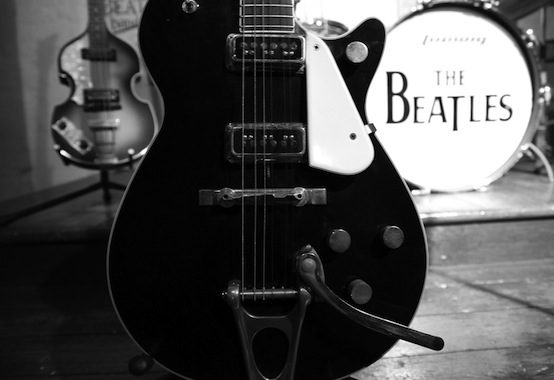Understanding Fuddy-Duddy Beatle Haters

The occasion of the 50th anniversary of the Beatles’ appearance on The Ed Sullivan Show has inspired some obligatory guffawing at those old squares who greeted the band with derision. One putdown that fairly stands out for its utter revulsion was from none other than William F. Buckley, who wrote in the Boston Globe in September 1964:
The Beatles are not merely awful; I would consider it sacrilegious to say anything less than that they are god awful. They are so unbelievably horribly, so appallingly unmusical, so dogmatically insensitive to the magic of the art that they qualify as crowned heads of anti-music, even as the imposter popes went down in history as “anti-popes.”
Without appearing willfully contrarian, I get where these critics were coming from, if only in a roundabout sort of way. I’m an enthusiast of early rock and all its British exponents, from both London and Liverpool; I appreciate and admire the Beatles just fine; etc. Yet at the end of the day I’m a Stones guy—and I can’t help but bristle when Beatlemaniacs diminish the Stones for their comparative lack of technical sophistication or proficiency. There is no end to my puzzlement at those who swear by the Beatles because of their proto-progressivity. Because here’s the thing: rock-and-roll really was retrogressive. Yes, even the Beatles.
Oh, I can just hear you out there. Look at George’s sweet jazz-guitar technique!
To which I can only respond, give me a freakin’ break.
George—a lovely player; in my opinion, the finest of the three Beatles guitarists—could never have hung with the likes of Barney Kessel, Herb Ellis, Les Paul, or Wes Montgomery, all of whose mastery of the guitar (in the 1950s!) far exceeded that of any rock-and-roller of the 1960s. This is to say nothing of Django or Charlie Christian.
For all the magic that the Beatles, with not a little help from the classically trained George Martin, created in the studio; for all their genius at crafting songs, there is not a chord or trope or motif of theirs that Cole Porter and George Gershwin would not have recognized. As Elijah Wald has noted, the Beatles did not so much push musical boundaries forward as they consolidated the earlier advances of other 20th century greats, from Louis Armstrong all the way to Tin Pan Alley. (I’m reminded of a bit of trivia I learned from Terry Teachout: the Beatles had mistakenly thought they were the first ones to end a tune on a 6th chord. Martin informed them that Glenn Miller already had.)
Again, don’t misunderstand: I’m a Beatles fan. I appreciate the unparalleled pop-cultural phenomenon that they were. But if I squint just a little, I find it easy to put myself in the shoes of someone who’d lived through hot jazz and hard bop, and who found the Beatles to be amateurish lightweights. In my own shoes, I would defend the Beatles without denying this fact. The amateurishness of rock music was a feature, not a bug. And it still is. If your passion for the Beatles stems from this outsize opinion of their technical competence, I regret to inform you, you’re doing it wrong.
Comments